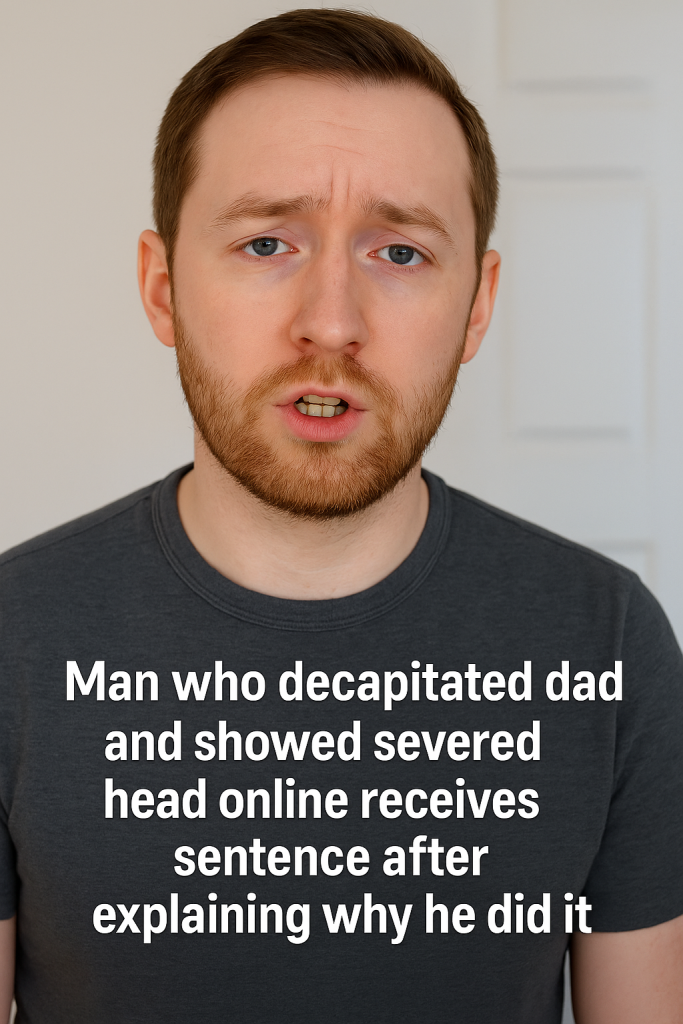A shocking and gruesome video showing a man livestreaming the decapitation of his father was publicly accessible for several hours before being removed from social media platforms. The disturbing footage sparked widespread outrage and led to a swift legal response. In a recent court proceeding, the man, described as bearded and in his late 20s, was sentenced after he explained the chilling reasons behind his horrific act.
The incident occurred earlier this year when the individual broadcast the violent crime online, capturing the attention of viewers before moderators could intervene and take down the content. Authorities were alerted promptly and began an extensive investigation, which culminated in the arrest and prosecution of the suspect.
During the trial, the defendant admitted to the act but provided a detailed explanation that shed light on a complex and troubled background. According to statements made in court, the man cited longstanding familial tensions and mental health struggles as contributing factors to his fatal decision. He expressed remorse but also claimed that he felt driven to this extreme action due to years of unresolved conflict with his father.
The court proceedings were intense and garnered significant public interest, with many people following updates on social media and news outlets. The judge condemned the act as a brutal and premeditated crime, emphasizing the trauma inflicted on the victim’s extended family and community. In delivering the sentence, the judge highlighted the need for justice while acknowledging the defendant’s admission and cooperation in the case.
Legal experts note that crimes involving live-streamed violence are particularly challenging due to their real-time exposure and the psychological impact on viewers. The case has sparked a renewed conversation about the responsibility of social media companies to monitor violent content more effectively and prevent such distressing images from proliferating.
Public reactions have been mixed, with many condemning the violence and others expressing concern over mental health support systems that could potentially prevent such tragedies. Advocacy groups are calling for enhanced resources and intervention programs to address the root causes of domestic violence and family breakdowns.
The man received a lengthy prison sentence, reflecting the severity of the crime. Court documents indicate that he will also undergo mandatory psychological evaluation and treatment during his time in custody. The victim’s family has asked for privacy as they mourn and begin to heal from the traumatic loss.
This case serves as a grim reminder of the dangers posed by unchecked violence and social media’s role in amplifying disturbing content. It has prompted authorities and organizations alike to reassess policies aimed at curbing the spread of harmful and graphic material online.



